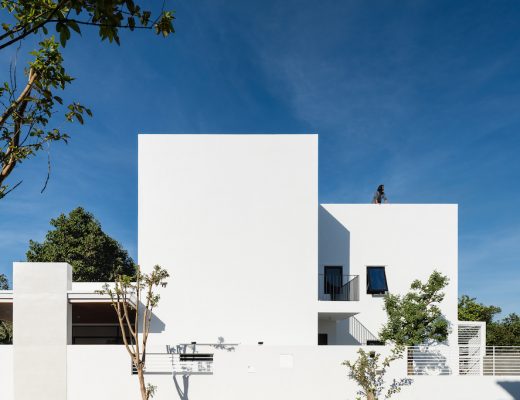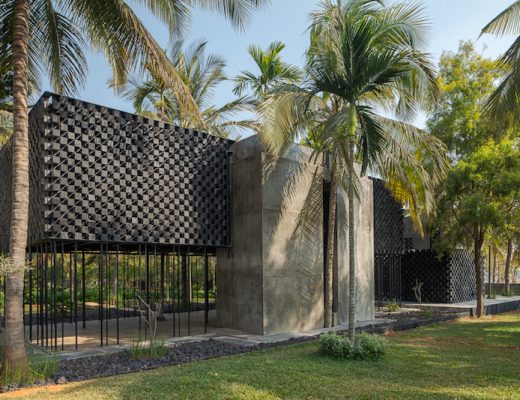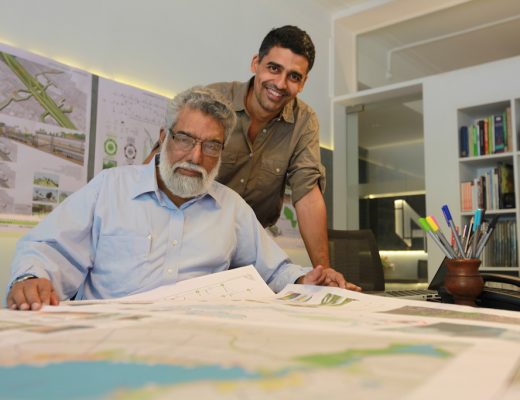Next month, Japan will celebrate the opening of its new $1.4 billion National Stadium ahead of 2020 Tokyo Summer Olympic and Paralympic Games. Designed by Kengo Kuma and the Azusa Sekkei Corporation, construction on the 68,000-seat arena has officially been completed, according to the Japan Sports Council. The project is located in Tokyo’s Meiji Jingu Gaien district and took almost exactly three years to build under the supervision of national construction giant Taisei Corporation. National Stadium is nearly twice the size of the venue it’s replacing, an arena of the same name that was built 61 years ago for the 1964 Tokyo Summer Olympics—the last time the city hosted the event. It’s set in the same space as its predecessor near one of Tokyo’s largest parks and features an all-timber-and-steel framing system that will allow lush greenery to spill over the sides of the pagoda-inspired structure as it grows in the next decade.
Kuma’s vision for National Stadium came quickly after nearly a decade of controversy surrounding its build-out. Zaha Hadid Architects was originally supposed to design the project as the centerpiece of the Tokyo Olympics, but her proposal proved too costly to complete in time for the 2020 opening. Instead, Kuma’s stadium, with its open-air columns and half-covered roof, was both easier and more cost-efficient to build. The design team sourced over 70,000 cubic feet of larch and cedarwood from all of Japan’s 47 prefectures, and while it was a smart sustainability move, it also drew criticism over allegations of endangered tropical timber being used.
The National Stadium is one of the 42 venues slated for use during the international sporting event next summer. Eight of the total spaces are completely new and all were designed by local architects. As the largest stadium in the city, National Stadium will play host to the opening and closing ceremonies of both the Olympics and Paralympic Games, as well as some soccer and track and field events. The official opening celebration for the National Stadium is scheduled for December 21, after which the site will host its first event: the Emperor’s Cup soccer final on New Year’s Day.




